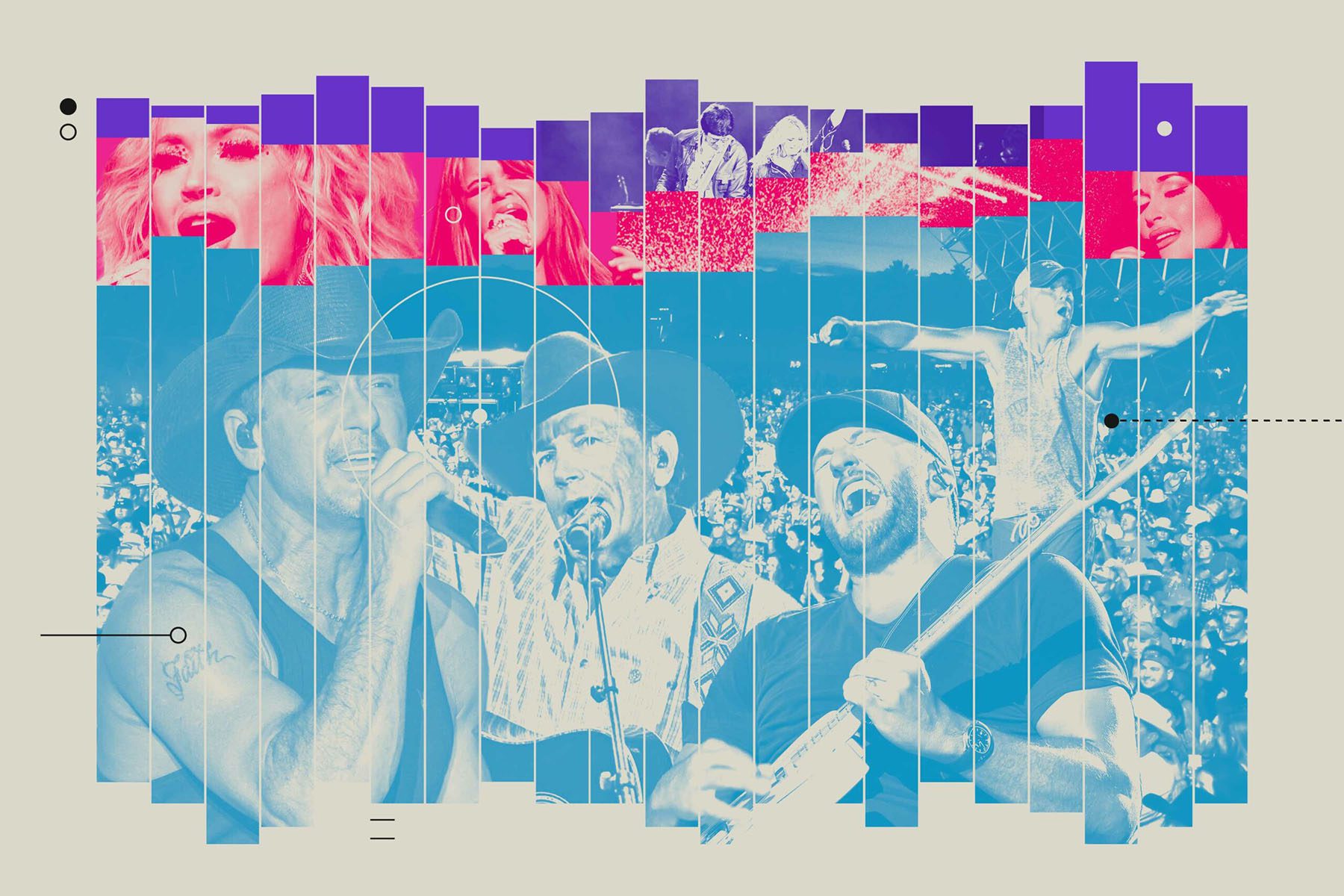Your trusted source for contextualizing the news. Sign up for our daily newsletter.
Jada Watson, an assistant professor of information studies at the University of Ottawa and the principal investigator of the SongData project, studies how genre cultures and communities are created and perpetuated in music. She focuses on the role that market data plays in the reinforcement of genre norms.
Watson spoke with The 19th about what has happened in country music since 2003, when The Chicks’ stance on the impending Iraq War sent the group into radio exile. She stressed the way in which country music radio has played a critical role in gatekeeping certain standards in the industry, especially when it comes to gender.
The year 2015 was especially emblematic, she noted, with Gary Overton, then the chief executive of Sony Nashville, saying, “If you’re not on country radio, you don’t exist.” After that came “Tomato-gate,” when radio consultant Keith Hill told an industry publication, “If you want to make ratings in country radio, take females out,” before going on to compare women artists in country to the tomatoes, not the lettuce, of the salad of country radio.
These remarks were “pretty indicative of how the industry mainstream works,” Watson said of country radio in the years following the fallout surrounding The Chicks. “If you’re not a White, cisgendered, heterosexual, able-bodied male, you’re not on air and you’re not on the radio and so you don’t exist within that space. There are multiple barriers to access to [the country music industry] and the biggest one is radio.”
Leslie Fram, the senior vice president of music and talent at Country Music Television (CMT), said that the success of women like Kacey Musgraves, Margo Price and Maren Morris, who have been unabashed in their politics while still achieving great critical and financial success, is hopefully a sign of change. “Their willingness to speak up, along with increased access to platforms on which they can build a fanbase, helps move the needle and provides a more diverse voice for this genre. I hope their bravery paves the way for others to feel more confident in speaking out.”
For now, country radio remains a self-reinforcing system, Watson said. “Female artists are not receiving adequate airplay, so their songs do not end up charting, and then they end up not being eligible for awards because you have to be on a chart to be eligible for nomination.”
It becomes a feedback loop, she said, leading to less airplay for women artists. “If they don’t get airplay, then labels aren’t going to sign them in the same way, but they’re also not going to support them in the way they do with male artists — and then that ricochets back to songwriting, and you end up with songwriters who are told to specifically write for men and are told to not write for female artists.”
This then creates an easy game of finger-pointing in country music, Watson said, where everyone can claim that it is actually another element of the industry that is to blame for the continued minimization of women in country. “Whether the blame should be on radio or on the labels is a chicken-or-egg. Radio stations say that the labels aren’t sending them the material, and the labels say, ‘Well radio doesn’t play it.’ But honestly, what one does the other responds to.”
-
From 2021:
Watson’s data analysis found that in 2022, women artists received just 11 percent of all airplay on the 156 country stations that report their data to Mediabase, a music industry service that monitors radio station airplay in 180 markets throughout the United States and Canada. The majority of airplay received by women occurs in the evening and overnight programming blocks, Watson found. “This is just not a system in which women or artists of color can win,” she said. “It’s disheartening. The system has to change. That’s why I can’t be a part of applauding this moment when people are excited that there are three women on the Top 10 [of the Mediabase Country Chart right now] because I see what’s coming up behind them, and that is the status quo. It’s not changing.”






